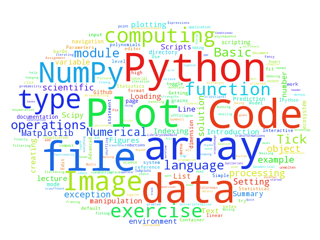Prospective students
Extension courses
The UB's university extension courses are study programmes of different lengths designed to enhance students' professional skills or enable them to specialize in their field of work.
Curs d'extensió universitària: Python for scientists
Who should be interested in this course?
Registration
Dates, schedule and where
General Goals
Teaching methodology
Contents
Languages

